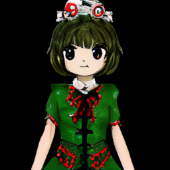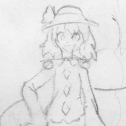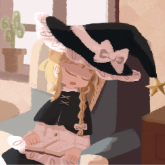Hello. Here we will discuss recent changes in doujin sphere which happened in 2010s-early 2020s.
Before we will start I will say some important notes.
Here I won't discuss the popularity of series on doujin events. This post is based mostly on observations and comments by doujin circles which make critical doujinshi about doujin and things I noticed researching this topic. This post is not perfect, because I could miss something and there is nearly no statistics. If you find some mistakes in this post, please, write about them.
It is important to understand what is doujin. Most common definitions you can find are something like:
Doujin - a group of people who have the same purpose and hobbies.
Doujin circle - a group which is formed to produce doujin works and goods.
Doujin sales event - a flea market where independent products are exhibited, sold (distributed).
And all of these is made to get fun; and all these activities are considered non-profit.
I think you have heard something like this many times. This may sound similar to indie culture, but there are differences. Modern Japanese doujin culture is a Japanese subculture, so there are cultural differences with Western indie. As there are formally nearly no restrictions in these activities (don't do illegal actions, don't do something that can cause inconvenience to somebody else, follow the theme of the event and guidelines (if you make derivative works)), unspoken rules (loose doujin rules) formed to regulate them:
That is from cultural side, but what about legal side (when we talk about derivative works). Many companies don't sue most doujin works as they are considered non-commercial (they are not competitors of companies, companies don't lose money; companies can get even more money, because they bring attention to the original works), but they can sue you and there were talks about that in government (some of them pre 2015 here), and in April 2016 Prime Minister Abe stated: "I believe that derivative activities such as doujinshi at Comic Market are not a non-prosecution offense because they generally do not use copyrighted works as they are, do not compete with the original works in the market, and do not unduly harm the interests of the rights holders". So you don't have to worry about copyrights on doujin events, but Copyright Act accompanying the TPP11 Agreement (2018) made the status of doujin works which are sold outside doujin events as non-prosecution crimes. ''Non-prosecution'' is a legal system that allowed prosecutors to prosecute acts that violated copyright law without the right holder's complaint. If that will be fully applied for whole doujin sphere were may be a lot of problems because of that. But still most companies don't do strikes on doujin (we will see why later). In summary, we see that doujin works on doujin events are in the grey zone, while doujin works outside doujin events are even less legal. As indie games aren't distributed on doujin events they can face all consequence of copyright acts.
But we can also look at this from economical side. There is a doujin circle (五花八門 / Circle Goka) which develops Doujin Economics Theory, which researches doujin from economical side. Here is the summary:
We see that doujin circles and indie studios have some common things, like making "products" being the primal goal. But we can also see the differences between them. Many indie creators have "profit-seeking" behavior and "production-seeking" behavior at the same time (if they lose "production-seeking" behavior (care only about money) in most cases their projects would be unsuccessful) and many indie creators don't limit themselves with self-funds and sales, they can also get donations, make crowdfunding campaigns, etc.
It is important to note that this book was written in 2014. And we will see that situation changed later.
After we pointed out features of doujin, we can go to main part.
Before 2000s there were a lot of family circles and circles of friends, but lately the number of personal circles (one-man circles) began to rise greatly, and as C81 report showed most male and most female circles were personal (and looking at modern doujin events most circles nowadays are personal). Money exchanges has become so large in some places that the line between "hobby" and "main job" has become blurred. "Professional doujin artists" became more common thing; they are criticized a lot, because it is considered that their main source of income is doujinshi activities. But because the number of people per circle is decreasing and the number of personal circles is increasing, the financial burden per person is increasing and total expenditure that circles spend on one work has also increased as the number of copies distributed increased too. So nowadays, if the leader of circle has to bear all the financial burden of production, it would be extremely difficult to maintain circle activities in the long term, and there would not be many circles that could consider it a "hobby". Individualization increased, so circles begin to see doujin events more as a form of interaction (as some interviews showed, doujin events are a good place to meet people you already know, but it is difficult to make new friends there).
As it became more harder to maintain doujin activities from financial side, circles began to be somewhat oriented toward earning money. They have to increase the production to earn more money to cover loses. But what about prices. Well, there is a thing like doujin "market prices". Circles set the unit price according to the content and volume of the work, but in the doujin market, it is extremely difficult to set a price that deviates from the "market price". In the doujin market, a wide, but not strict, agreement is formed that a certain type of doujin work should be priced at some level, and most work prices are guided to be determined within the range of external market prices (while aiming to cover the actual production costs). Those "market prices" are fixed, so this can lead to situation in which circles are forced to lower their distribution prices more than necessary. The economical situation in Japan is not very good, printing cost and travel cost is increasing, but "market prices" are decreasing:
As financial burden for circles becomes more serious, doujin activities becomes less about fun and more about money. This and individualization may lead to different social problems and conflics (for example fighting over opinions on social media (which is not very otaku thing) as was pointed out by circle "国立大学同人 秋葉原大学" in their latest critical doujinshi "オタ寓話" (+ they covered argues about the state of Comiket in "秋葉原大学時局評論集 萌集C103号")). Despite that doujin activities still remain *mostly* as fan activities.
But this was from the side of doujin circles, but there is another side: companies. Some companies in 1990s realized that they can collaborate with doujinshi creators and sell their works. Doujin creators got a way to actually earn money (if the shops would like to sell your works). Printing companies also began to provide their services to doujin creators, which can be profitable (sometimes much more profitable than for doujinshi creators). Companies realized that supporting these activities may profitable, so (aside increasing the amount of publishing and printing services) in 2010s they began to fund projects related to doujin. There were not a lot of them and they were related to services. Here are some of business projects:
"日本の同人誌などのオタクマンガを翻訳し電子書籍として世界中に発信",
"BtoBからBtoCへ同人誌受注事業参入でのECサイトの構築",
"同人誌市場の深耕と海外需要の先取り対応に向けた新たな挑戦"
Also, in the second half of 2010s 同人税金.com appeared. It is a service which helps with financial problems of doujin circles.
But COVID changed everything. Doujin scene realized that self-funds were not enough and they needed a way to survive. I pointed out some changes here, but actually there are more of them and they are more serious.
Before we will continue I will introduce another researcher of doujin: Hanara (花羅), the leader of STRIKE HOLE circle. He has been researching doujin since 2000s, visited a lot of different events of different genres, wrote critical doujinshi about that. He made a book about his activities. But he is also a "small and medium-sized business consultant who is familiar with subsidies for doujinshi artists" and he:
・Started full-scale work as "SME management consultant who is knowledgeable about subsidies for doujin artists" due to COVID-19
・Meeting with politicians who are passionate about supporting doujin artists
What he actually did? He helped a lot with different subsidies from government and business during COVID (you can read about some of them here).
Circles applied for these programs to get help. Such programs helped circles during COVID a lot, because they needed a way to survive. But there was also a side effect. Circles realized that they can rely not only on their self-funds and sales, they can also get money from subsidies. And business saw that they can give money to doujin circles. Here you can see some business programs since 2020 (many of them intervene into doujin activities more directly (one of the listed below directly intervene into a doujin event)):
"3密回避!オンライン同人誌イベント会場の開発",
"同人誌製作のデジタル印刷へのシフトで顧客ニーズへの対応と生産性向上を図る",
"印刷・加工技術の高度化による「同人誌」市場への参入と収益構造の再構築",
"女性向同人専門フリマサイト「MIKEMIKE」の広告出稿",
"デジタル印刷導入により同人誌の高精度化及び最新データ形式対応",
"箔押し加工の生産能力強化による同人誌関連のニーズの獲得"
We can see that companies realized that they can get profit from doujin. They began to invest money into it more actively. And this is only publicly available information.
And in my opinion this is a problem, because this moves doujin from hobby activities to money-making activities even more. Now any company may try to boost popularity of their products by paying some doujin circles, their works would bring attention to companies' original works, so they would get not expensive advertisement. For some circles it may be a good thing, but is there fun in such activities?
We can see that doujin scene has changed a lot lately from inside and outside. Some if those changes made doujin less hobby-like and more money-oriented. Commercial world became more interested in doujin. For many circles doujin activities remain mostly hobby like activities.
We can only hope that doujin scene would remain mostly hobby as long as possible.







